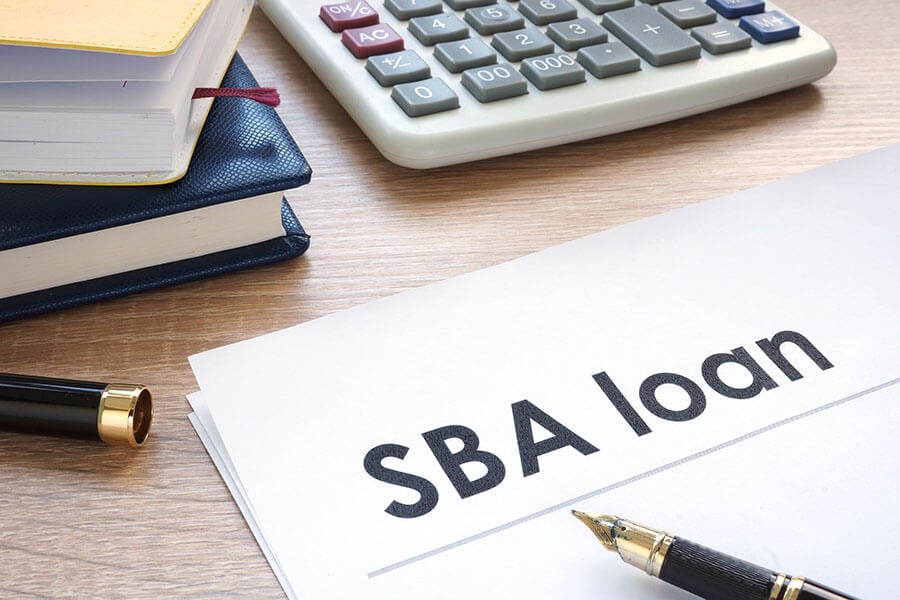As a small business owner, you are part of the backbone of the American economy. Small businesses makeup approximately 44 percent of all economic activity in the U.S. and employ millions of people. About 534,000 new small businesses start up every month, and nearly all of them need funding to get off the ground.
Unfortunately, many aspiring entrepreneurs give up on the idea of starting a business with the belief that it would be too difficult to obtain a loan. But this isn’t true at all. Thanks to the Small Business Administration (SBA) and its loan program, securing money to either start or grow an existing business is more accessible than you may think.
We’ll give you some background on SBA Loans now and then tell you which documents you’ll need to apply for a loan and how to get approved. You should save this page and use it as a checklist when you’re ready to apply for your SBA loan.
What Is the SBA?
The SBA is a U.S. government agency that supports the creation of new businesses and the growth of existing small businesses. Just a few services the SBA assists with include:
- Business planning
- Launching a new business
- Growing an existing business
- Business counseling
The SBA is an incredible resource that all small businesses should take advantage of. One of the most popular services the agency offers is its small business loan program.
What Is an SBA Loan?
An SBA loan is a small business loan offered by a lender with which the SBA partners. The government guarantees these loans, which decreases the risk to lenders if businesses are unable to repay them. This guarantee makes it much easier for borrowers to qualify for the money they need.
SBA loans can be used for many business needs including:
- Startup costs
- Purchasing real estate and equipment
- Obtaining inventory
- Renovating a building
- Working capital
What Are the Benefits of SBA Loans?
Business owners prefer SBA loans over other sources of funding for several reasons. Because the U.S. government backs them, there is less risk for lenders. This makes qualifying for them easier than other types of loans.
SBA loans also have lower interest rates and fees than conventional loans. Interest rates are capped by the SBA, which makes these loans an affordable funding option.
In addition, SBA loans have extended repayment terms. A 25-year repayment term is available for purchasing property and equipment, and shorter terms are available for other business needs. This convenience allows businesses to fund expansions without having to worry about short-term debt repayment issues.
What Types of SBA Loans Are Available?
The SBA offers several different types of loans for small businesses. Eligibility varies depending on the type of loan and the lender.
7(a) Loans
The most common type of SBA loan is the 7(a) loan. It is best for:
- Purchasing property, machinery, supplies, and equipment
- Working capital
- Starting a new business
- Expanding an existing business
- Refinancing business debt
The maximum you can borrow with a 7(a) loan is $5 million. SBA can guarantee 85 percent of a 7(a) up to $150,000, and 75% of the loan is guaranteed for loan amounts greater than $150,000.
504 Loans
504 loans are best suited for purchasing major fixed assets, such as real estate, long-term machinery, and equipment, or making improvements to existing facilities. These loans can’t be used for working capital, inventory, refinancing business debt, or real estate investments like apartment buildings.
To qualify for a 504 loan, you must be a for-profit business in the U.S., have a tangible net worth of less than $15 million, and have an average net income of less than $5 million for the two previous years. Repayment terms for 504 loans include 10, 20, and 25 years.
504 loans are only available through Certified Development Companies (CDCs), which are organizations that partner with the SBA to promote local economic development.
Microloans
The smallest loans offered through the SBA are microloans. These loans are for new business startups and to help existing businesses expand. They are available for up to $50,000.
SBA microloans can be used for many of the things that 7(a) loans can be used for, except purchasing real estate or refinancing business debt.
Disaster Loans
The SBA offers disaster loans for small businesses in areas affected by declared disasters. Low-interest loans are available for up to $2 million that can be used to repair or replace property, plant, equipment, and inventory. Repayment terms of up to 30 years are available.
How Do You Apply for an SBA Loan?
Because the SBA does not offer any loans directly, you will have to go through a lender that partners with the organization. Banks and credit unions issue most SBA loans, while Certified Development Centers (CDCs) issue 504 loans.
If you are applying with a bank or credit union, be sure you have all financial documents ready before applying to ensure a smooth process.
Documents you may need to apply for an SBA loan include:
- Ownership structure information (LLC, corporation, sole proprietorship)
- Franchise information (if applicable)
- Certificate of business
- Business plan
- Financial statements
- Executive summary
- Other information as requested
How Can You Position Yourself to Be Approved?
Obtaining an SBA loan isn’t difficult, but there are some things you can do to increase your chances of being approved. Unless you are a new start-up, lenders look for established businesses with strong financial statements and the ability to repay the money loaned to them.
Here are some essential steps to take to prepare for your SBA Loan:
Have a Written Business Plan
A well-written business plan shows lenders that you have a strategy to operate and grow your business. They want to see that your business plan is sound and that it has strong profit potential.
Make Sure You Have Good Credit
A hard credit check will be done when applying for an SBA loan, and you want to make sure your credit score is in good shape. You can obtain one free credit report annually from each of the three credit reporting bureaus (Equifax, TransUnion, Experian). Be sure to review your credit reports to see if they contain any errors. If you do find an error, you can dispute it with the reporting bureau.
Make Sure You Have Strong Financial Statements
Your business’s financial statements will be reviewed when applying for a loan to make sure there are no red flags. Lenders will assess cash flow, debt obligations, and other information.
Before you apply for an SBA loan, review your financial statements to make sure there are no problems. You can easily access and print your financial statements if you are using standard bookkeeping software. A CPA may be able to make recommendations to help you improve them.
Get the Funding You Need to Start or Grow Your Business
As a proud member of the local community, Wasatch Peaks Credit Union wants to see your business succeed. One of our experienced financial advisors can help you select the right loan for your needs and provide financial advice to ensure your business is positioned for success.



